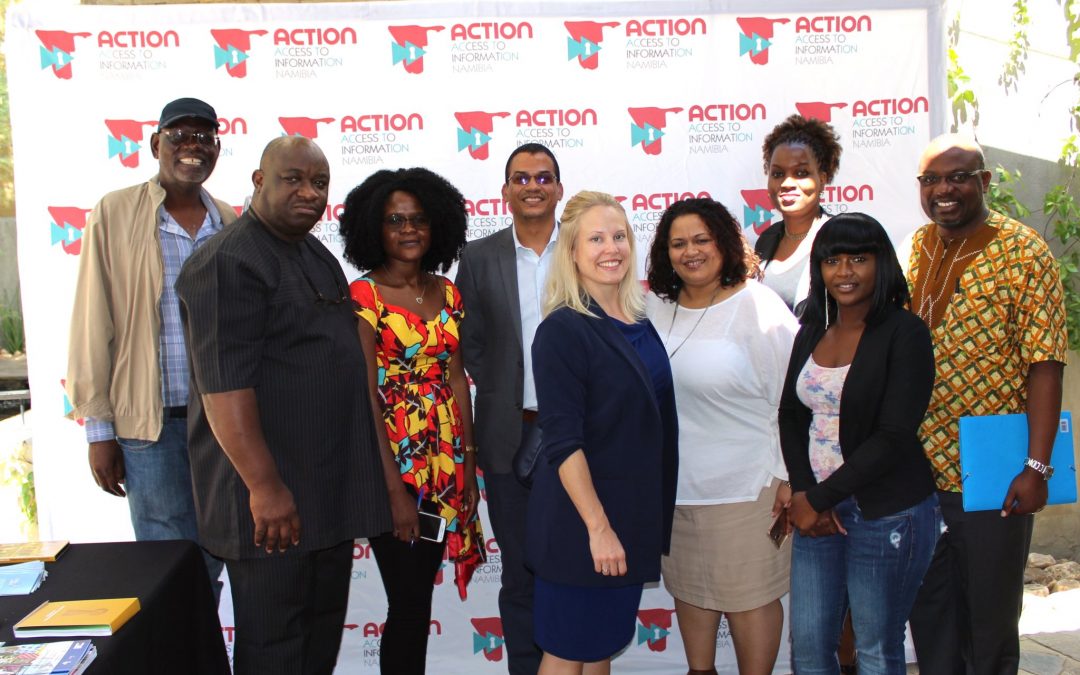BY JANE MUNGABWA –
“We (Namibia) have the chance of learning from the experiences of others”, was the view of the ACTION Coalition Chairperson, Frederico Links, with regard to the access to information framework in Namibia.
Links expressed this opinion at the recent Fesmedia Africa and ACTION Namibia Coalition breakfast meeting with the African Platform on Access to Information (APAI) working group themed: “Access to Information in Africa on the move: How far has Namibia Come?”.
Discussions at the ATI breakfast meeting, moderated by The Namibia Media Trust’s Gwen Lister, involved strategies to develop and implement effective access to information legislation in Namibia (and Africa). ATI experts from around the continent shared basic principles for an effective ATI law.
Edetaen Ojo, an APAI working group member, advised that a good ATI law should “be open to citizens and residents of a country”. According to Ojo, the process for requesting information should be kept as simple as possible and timeframes for compliance should be kept as short as possible. The state of record-keeping in government and institutions that hold public information must be effective in order to ensure easier access.
With regard to issues around cost of access, Ojo stated that Namibia has the opportunity to ensure that administration costs for information requests are affordable for ordinary citizens or are completely free, because according to Ojo, “public institutions can use the administrative fee to discourage citizens/ people from requesting information”.
Gilbert Sendugwa, a regional ATI expert, proposed that another way to ensure access is for an ATI law to have promotional measures. Sendugwa stated that in some contexts it is found that a law is in place, but people do not know about it and how to use it. Capacity building in public institutions that are mandated to provide information is essential. Public Information Officers need to be sensitized, (a role which ACTION will be playing proactively) to understand the proposed law in order to effectively carry out their mandate.
Once citizens and public information officers are briefed, another important issue that may arise is the grounds for refusal of information. The APAI model law sets the standard of information that should not be in the public domain only as that which compromises national security and the protection of privacy. Sendugwa warned that it is often found that the list of exceptions is too long and defeats the purpose of the law. Ojo added that it should also be noted that there should be no need for citizens to give reasons why they require requested information. Sendugwa concurred with Ojo saying that there should be sanctions for lack of compliance with information requests and “internal mechanisms of appeal in organisations that hold information to ensure an appeal process that can be accessed by ordinary citizens”.
Sandra Musoga of Article 19 Eastern Africa, pointed out that governments are not the only institutions that hold information. Many of its functions are being carried out by contracted private bodies, so best practice would be to recognise that others are also holding public information. Hence, the draft law has to make provision for these too to comply with the ATI law.
Various stakeholders including civil society, government officials, business people and youth attended the breakfast meeting and shared ideas in a lively interaction on how to ensure that the impending ATI law in Namibia protects the interests of all Namibian citizens (and residents). In response to the various best practices that were shared by stakeholders at the meeting, Strategic Coordinator at the Namibia Media Trust, Zoe Titus, expressed similar thoughts to the ACTION chair by saying that Namibian ATI law could be “a best practice model for the rest of the continent (Africa)”.

